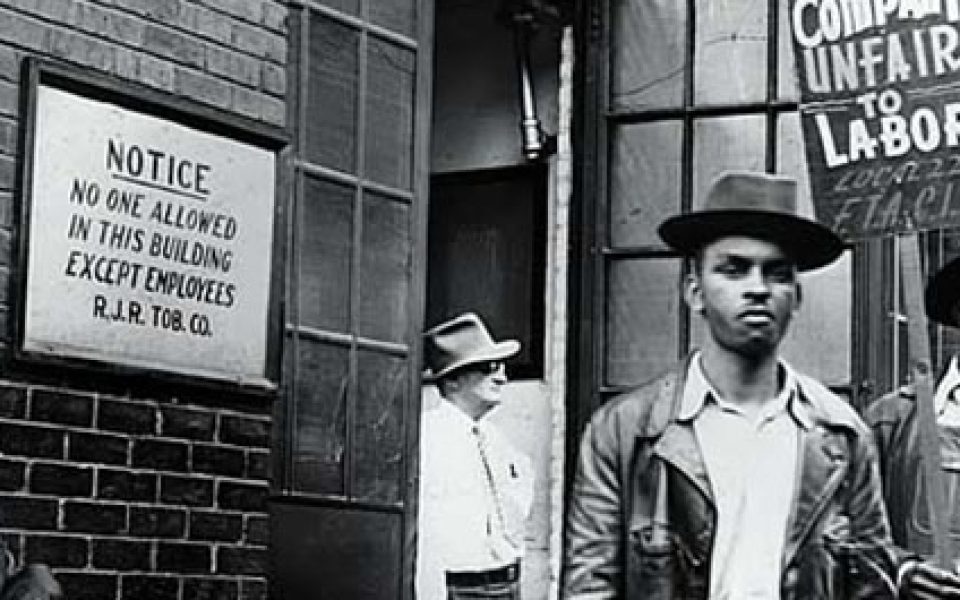On Monday, activists in the Triad and around the world held strikes, marches and rallies to commemorate International Workers’ Day. Their actions and the enduring struggle of the working class call for a look at one of the most important and influential labor unions in the American South: Winston-Salem’s Local 22.
Throughout the early 20th Century, the industrial giant RJ Reynolds Tobacco Co. ruled Winston-Salem. It dominated the economy and decision-making in the Camel City — a name derivative of Reynolds’ Camel cigarettes — including a familiar development of working and ruling classes. Workers labored in terrible conditions for little money, while Reynolds and other stockholders amassed enormous fortunes.
Robert Korstad’s Civil Rights Unionism: Tobacco Workers and the Struggle for Democracy in the Mid-Twentieth-Century South recounts the events of June 17, 1943, when a group of black women refused to continue work on the factory floor. Their courage inspired others in the factory to join, and word of the strike spread throughout the different plants. Ultimately, the workers shut down Reynolds operations during a six-day strike. They later voted to establish a union, which successfully gained higher wages, paid holidays and seniority rights for the workers.
According to a Stephen Martin article in Duke Magazine that reviews Korstad’s book, Local 22’s influence swept throughout Winston-Salem. The union registered thousands of black voters and helped a black candidate defeat a white opponent for elected office in the South for the first time since the turn of the century.
However, when another strike took place in 1947, the Reynolds company used ties between Local 22 and the Communist Party to unsettle the union’s supporters, particularly Southern liberals. The Red Scare that grew during the Cold War provided a political weapon that the ruling class wielded to repress the workers’ movement, Korstad explains.
The forces behind the economic inequality that impoverished African Americans and other members of the working class — the same forces and inequality that Local 22 strove to address — endure today.
Join the First Amendment Society, a membership that goes directly to funding TCB‘s newsroom.
We believe that reporting can save the world.
The TCB First Amendment Society recognizes the vital role of a free, unfettered press with a bundling of local experiences designed to build community, and unique engagements with our newsroom that will help you understand, and shape, local journalism’s critical role in uplifting the people in our cities.
All revenue goes directly into the newsroom as reporters’ salaries and freelance commissions.


Leave a Reply